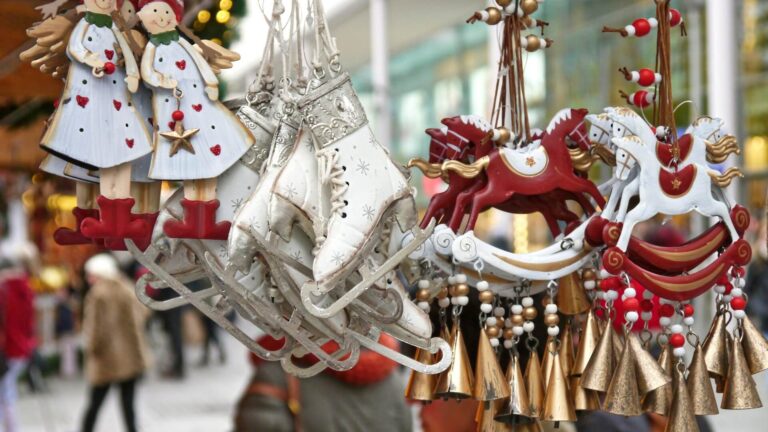
If you need a freelance travel writer or you would like to see your country, city, flight, etc., presented on the blog, drop me an email.
Find our more on Freelance Travel Writer page.
“Things to do in Umbria” is the post that will take you to the central Italian region best known for its Etruscan legacy. The civilization that thrived in these parts since the 9th century BC was huge even before the idea of ancient Rome came to life. And just imagine visiting some of the olden wells, which I did in Orvieto, and having pasta with truffles that Umbria is famous for. (I tried them in Perugia.) Also, the region is less crowded than neighboring Tuscany – while the wine is just as good.
UMBRIA ITALY
Umbria Italy is the only region on the Apennine Peninsula, out of 20, that doesn’t have a coast. Being in the central part of Italy, it is close to other tourist attractions such as those in Rome or Florence.
It is popular as the Green Heart of Italy due to its valleys, forests, and waters it is abundant with but it is also dotted with charming towns and castles. The river Tiber flows through the region and the capital is Perugia.
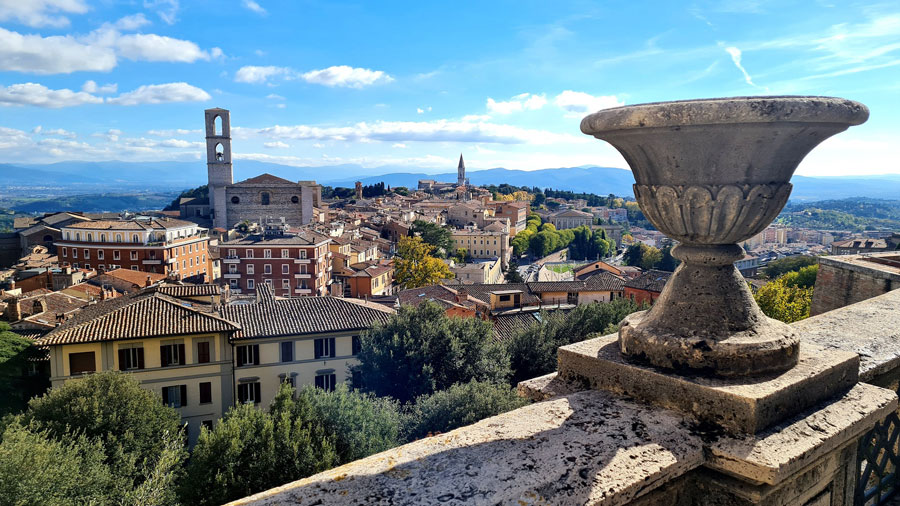
Things to do in Umbria include visiting Etruscan constructions as I already mentioned but also Roman monuments and medieval landmarks that will take you on a journey through time. After going from one town to the next, the picture will begin to form in your mind as if doing a puzzle.
Before we begin, imagine hilltop towns, museums, castles, and cathedrals, but also wild boar prosciutto and special chocolates.
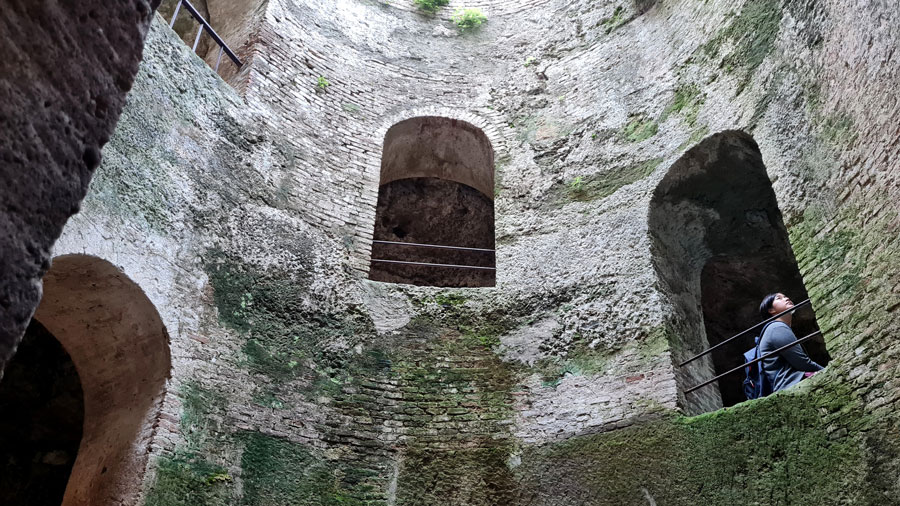
As the region’s capital, Perugia is a must-see when talking about things to do in Umbria. There will be a separate post dedicated to this town soon, but let me just remind you that the Etruscans traditionally built their settlements on hilltops (while ancient Umbrians did it on the slopes), and towns developed beneath throughout centuries. One can still climb to the historical center of Perugia and see the underground city. It was buried by an order of a pope in the 16th century so that a new fortification could rise above. The whole system of streets and walls underneath is preserved.
Take a walk along the main pedestrian street that will take you by the 13th-century Palazzo dei Priori to the Fourth November Square adorned by Perugia Cathedral and Maggiore Fountain. Perugia is famous for being a university city where academic institutions were founded as early as the 14th century, but for popular local chocolates called Baci or Kisses as well.
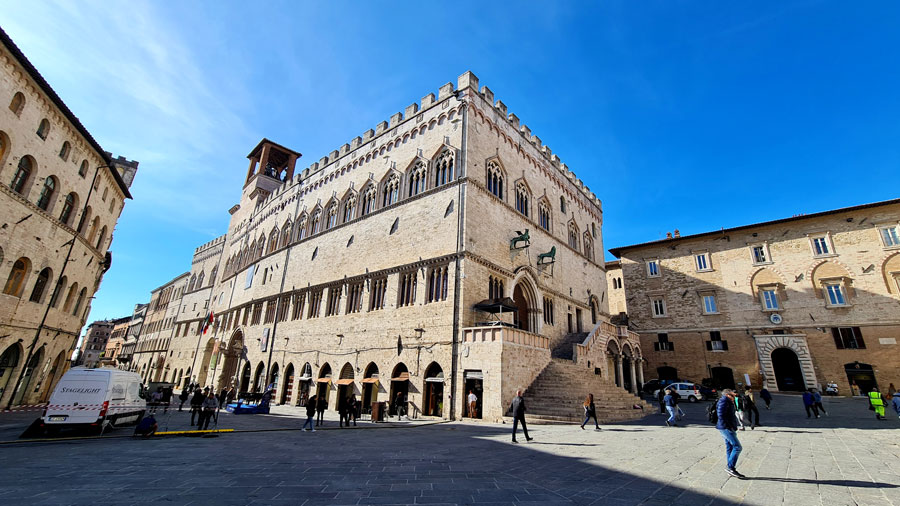
If I tell you that you will climb to this hilltop village by an old funicular and see the cathedral popular as being “inverted” because of the frescoes on its façade, you will understand why you should come to Orvieto. (Read more in Orvieto Things to do.) Furthermore, this is the place to see the matching charming rooftops of a small Italian town when climbing to the terrace of Torre del Moro, the 13th-century tower which is about 50 meters tall.
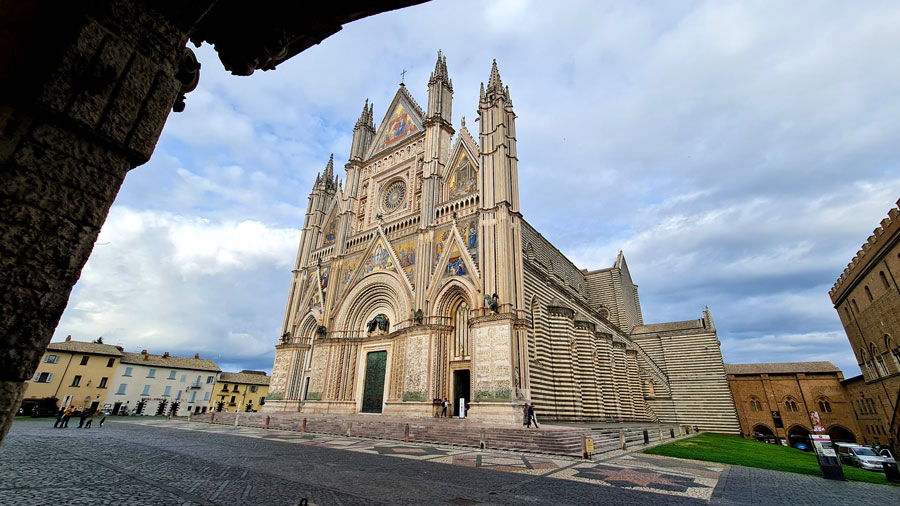
Fine stone houses and old cobblestone will charm you even more in yet another town on our cities of Umbria list. Visiting Assisi is among the things to do in Umbria not just because it is quite lovely but because it is the birthplace of the great saint and patron of Italy – Francis of Assisi. He founded the Franciscan order and was buried in the local cathedral.
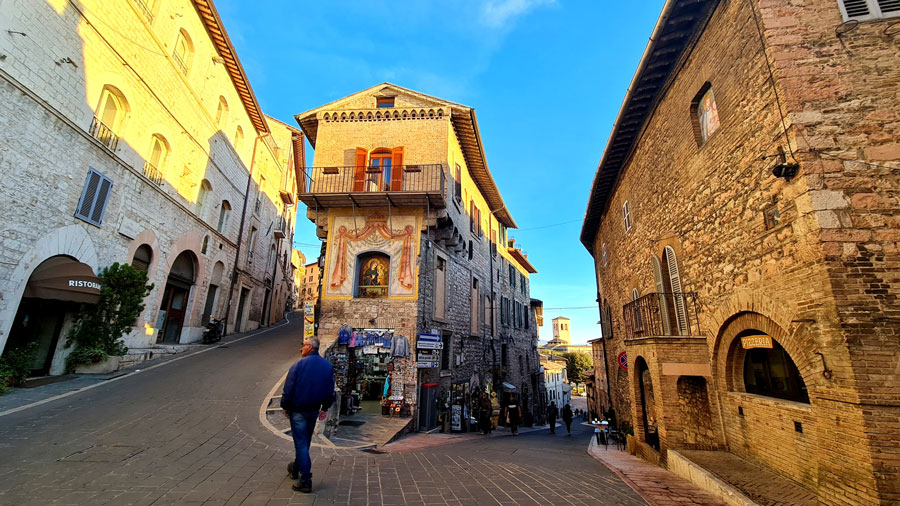
Not far from Assisi lays another pretty town called Spello. Remember those quaint postcards with stone houses and heavy cobblestone allies? Well, they might be photographed here. This is a small, charming settlement on the slopes of Saint Francis Mountain. The medieval town covers just over 61 square km and it can be visited in a few hours. Spello is most popular because of its Flower Festival or Infiorati in May and June, and it has to be on your “things to do in Umbria” itinerary.
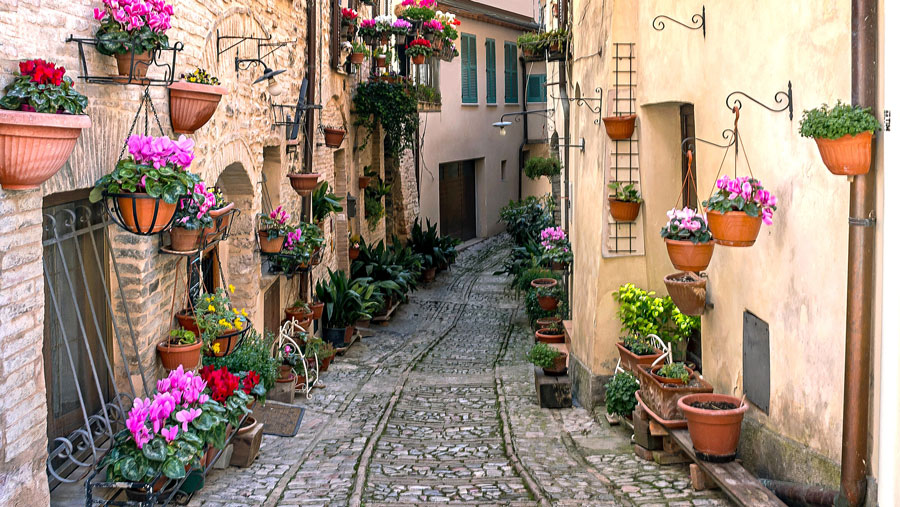
When you get to the main square, sit at a local café, and have a macchiato. Admire the 12th-century Spoleto Cathedral bell tower nearby and remember that each year in June this town hosts a festival dedicated to different art forms. Pavarotti and Andy Warhol were among the celebrities to attend. Take a stroll to Ponte delle Torri which is 230 meters long and 82 tall.
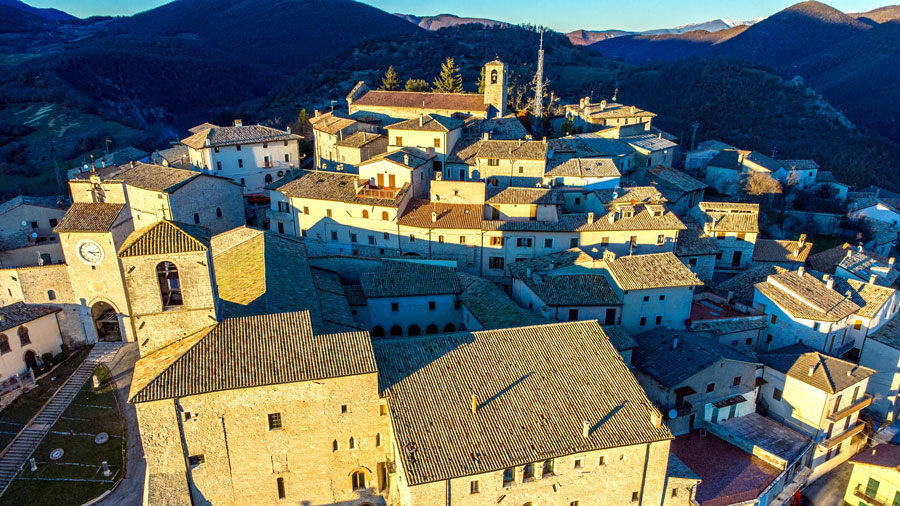
Although it is near Assisi and just northeast of Perugia, Gubbio is rarely visited by tourists. This is one of the oldest towns in Umbria. Its central area is rich in medieval, Gothic, and Renaissance legacy. Gubbio is nicknamed Town of Fools due to the so-called “fools’ license” that one can obtain by circling a small fountain three times. Pay attention to the 15th-century Palazzo Ducale, Palazzo dei Consoli, and the 13th-century cathedral.
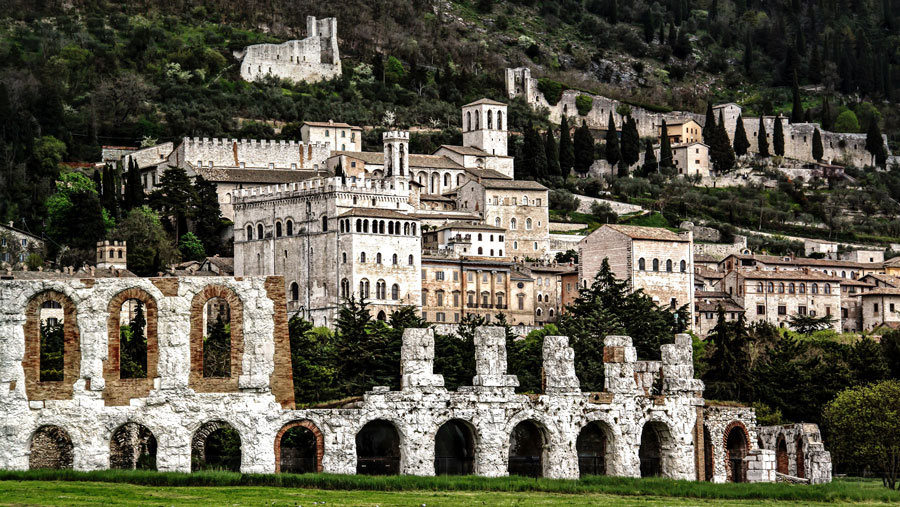
At the heart of the Sibillini Mountain National Park, among high peaks of about 2,000 meters, Norcia town is situated. They say that it was once popular as a settlement for artists and specialists in medicine, law, and literature. Ancient Romans called it Nursia due to medicine men (nursino). Make sure to visit one of the norcinerias, stores that sell salami, prosciutto, and other kinds of wild boar and pork products.
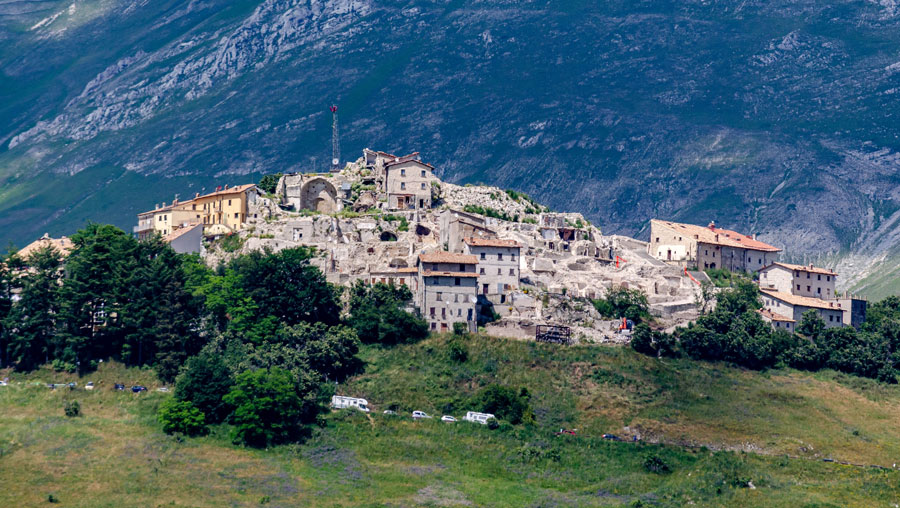
Todi is another hilltop town that should be on the “things to do in Umbria” list. It is surrounded by walls on three sides and they all originate from different periods. The inner wall was built by the Etruscans, the middle one by the Romans, and the last one dates back to the middle ages. The 16th-century Santa Maria della Consolazione church is one of the landmarks, and so are Piazza del Popolo square and the old arches between houses.
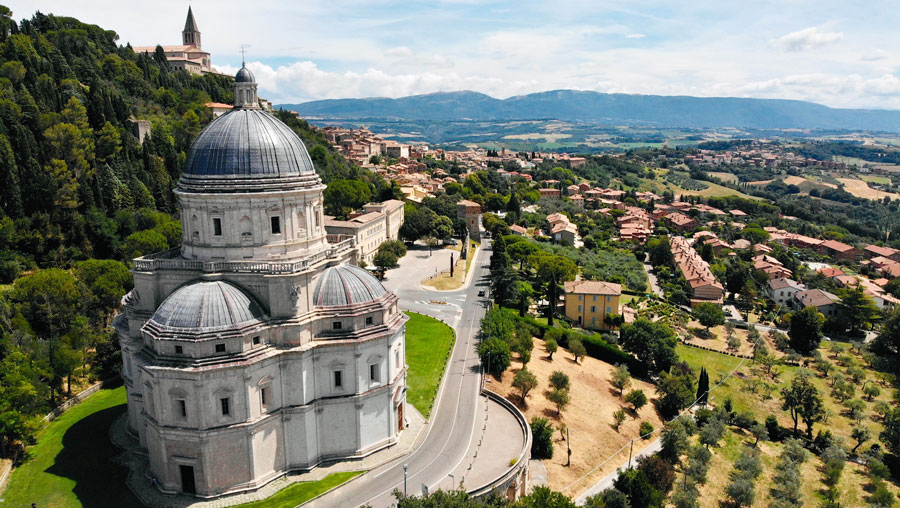
For those who have some extra time, take a stroll along the Trasimeno Lake tucked between olive groves, vineyards, and quaint villages. This is where the Carthaginians led by Hannibal ambushed the Romans in 217 BC. If you are a nature lover, you should head over to the Marmore Waterfalls cascades built by the ingenuity of Roman technology in the 3rd century BC…
Such an abundance of history, culture, and Italian charm! And there is always something new to discover.
Next: ORVIETO, A SMALL HILLTOP TOWN
The full ITALY SERIES
If you need a freelance travel writer or you would like to see your country, city, flight, etc., presented on the blog, drop me an email.
Find our more on Freelance Travel Writer page.
I am looking forward to working with you.



